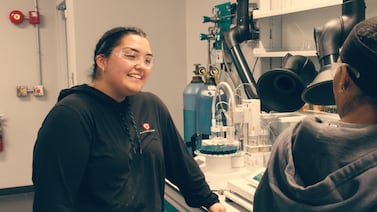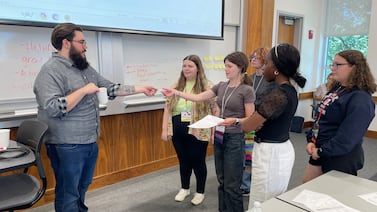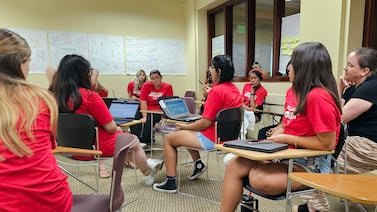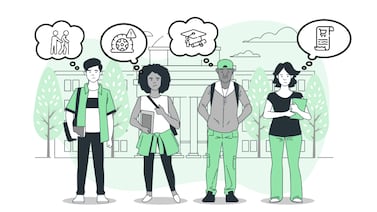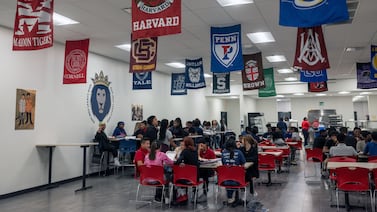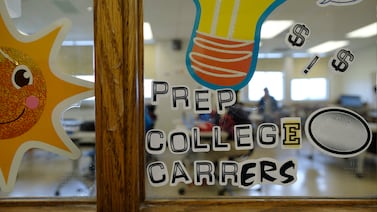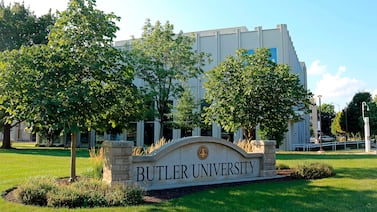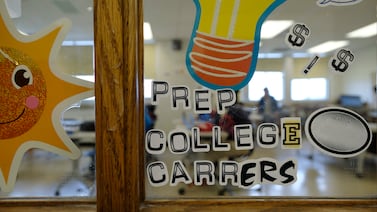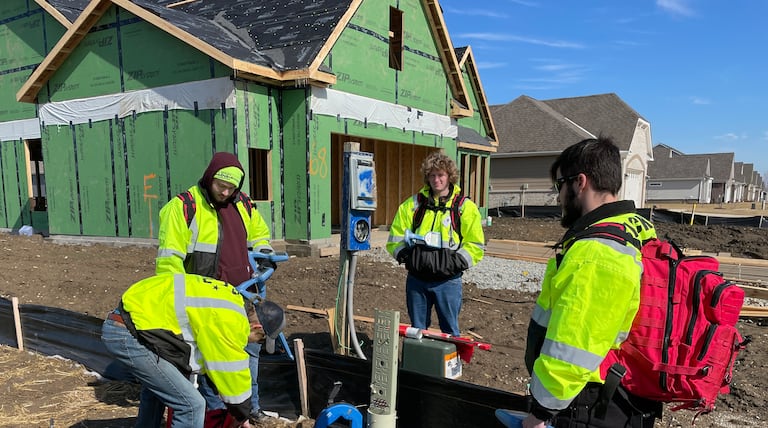Higher Education
In 2022, Chalkbeat Indiana is expanding its coverage of higher education. Our reporting will continue to focus on educational equity, examining how Indiana’s higher education systems serve students of color and students from low-income backgrounds. Do you have a story to share? Reach out to MJ Slaby at mslaby@chalkbeat.org.
Indiana set a goal to have 60% of high school seniors complete the Free Application for Federal Student Aid or FAFSA by April 15 every year. This year, the state reached 55%.
Students who complete one of the state’s new graduation pathways will also be eligible for interviews with large companies.
Schools can adopt the new requirements, which offer 3 graduation pathways for students, as early as next year.
The paid apprenticeships through EmployIndy could serve as a roadmap of what’s to come for other Indiana high schoolers.
Higher education officials say families should try to get key accounts set up soon so they can be ready to apply for financial aid.
Purdue says the proposed new diplomas would not meet admission requirements, while IU supports a special seal for college-bound students.
Despite a rough rollout, nearly the same number of Indiana high school seniors filled out the FAFSA in 2024 as 2023. But there’s still time to fill it out.
With 58% of campers receiving tuition assistance, university staff hope to continue need-based funding after their grant ends.
The Teacher Prep Academy at the University of Indianapolis wants to draw more young people to teaching to fill open education jobs in the state.
For the third year in a row, about 53% of Indiana high school graduates are going to college.
The state’s FAFSA completion rates have dipped from a year ago, but there’s still time to fill out the FAFSA before a key April 15 deadline.
Fewer than 1 in 10 Indiana students who enroll in community college go on to earn degrees from 4-year institutions.
Colleges have pushed back saying it would harm students and educators.
State leaders want to make sure all students have the opportunity to earn 30 college credits in high school.
Students now required to fill out the form to access financial aid for college will have less time to do so.
The new program’s associate degrees will be at no cost to most students. If they continue to earn a four-year degree, their costs will be capped at $10,000.
The share of students earning degrees on time has also grown over the last five years, the state reported.
From Sept. 25 to 29, 36 colleges and universities in the state will have no application fee.
Researchers say CTE programs should be multifaceted, offering students opportunities to explore career paths, connections to employers, and paths to a two-year degree.
Students are thinking about everything from pay to burnout as they prepare for careers in the classroom.



